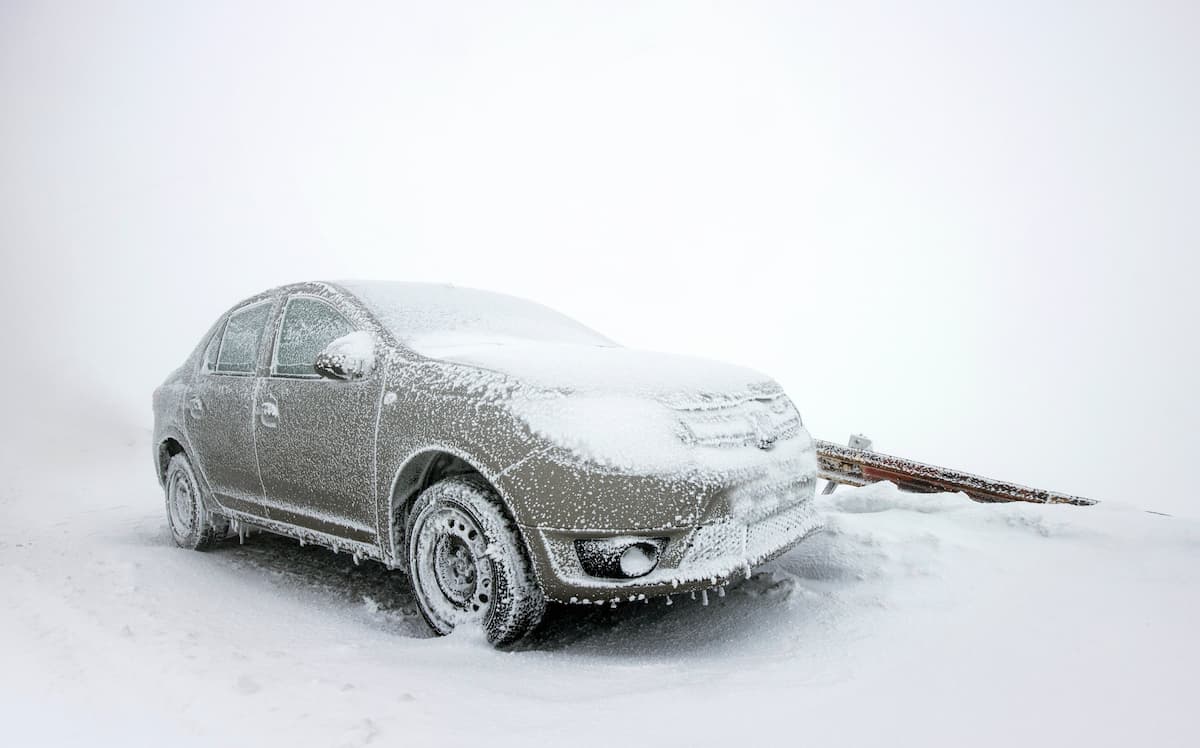
- High Country Conservation
- January 23, 2024
- Ask Eartha
Dear Eartha,
I don’t have a garage, and it’s been really cold lately. I always let my car warm up for 10 – 15 minutes, but I feel guilty about it. Is it so wrong? What’s a better alternative?
I get it – it’s been cold and snowy and cleaning off frozen windshields is definitely one of the least fun aspects of mountain living. Of course, you should take the time to clear your windshield, windows, side mirrors, and license plate, but does your car really need to idle during the 10 minutes it takes you to get road-ready? Well, no. Here’s what the experts say.
Idling Gets You Nowhere
Although it’s dated, a study from 2009 found that most Americans believe that a car needs to warm-up at least five minutes before driving when temperatures are below freezing. But unless your daily driver is from the 1980s, chances are it doesn’t have a carburetor (If you came of driving age after the mid-90s, you might be wondering what a carburetor is. It’s a device that mixes gasoline and air in order to achieve combustion – that is, to make a car go). Vehicles with carburetors did need to warm up to avoid stalling.
These days, gas-powered cars have electronic fuel injection systems, and that means you don’t need to let your engine idle very long to properly warm up. It is true that oil moves more slowly in cold weather, and so you’ll want to give it more time to lubricate all the moving parts in your engine. How much time? In general, 30 seconds to a minute is all it takes. Remember, cars warm up faster when they’re driving (as opposed to idling) and a few minutes on the road will get the heat cranking far better than 15 minutes of idling. That doesn’t mean you should gun the engine as soon as you start driving. For the sake of your car, take it easy on the gas pedal until the temperature gauge starts to tick up.
Idle Talk
What’s the big deal about idling? Aside from the time it takes to get your engine ready to drive, idling is a waste of gas (and therefore money), and it causes a substantial amount of pollution. Just idling your car for two minutes takes the same amount of gas as driving a mile. Quick math says if you’re a 10-minute idler, you’ve burned the gas equivalent of 5 miles. Over time, that adds up. Department of Energy research estimates that idling personal vehicles wastes about 3 billion gallons of gasoline each year. At today’s gas prices, that’s at a cost of over $9 billion dollars. It’s also a lot of pollution – 30 million tons of carbon dioxide. According to the EPA, that’s equal to the carbon pollution generated by eight coal-fired power plants in a year. Gas-powered vehicles also emit carbon monoxide, nitrogen dioxide, and volatile organic compounds – all of which are air pollutants, and some of which contribute to the formation of ozone. This pollution is why many states and local governments have anti-idling laws. And, it’s against the law in Colorado to leave a running vehicle unattended (with several exceptions, of course).
Steering Clear of Idling
So, what’s a frigid Summit County resident to do? Whether snow or ice covering your windshield, take the time to clean it off so your view is unobstructed (because you can get pulled over for failing to do so). After that, get in, buckle up, and gently go.
Keep in mind, idling isn’t just a wintertime issue – or just a start-up issue. I’ve seen plenty of folks idling their cars in grocery store parking lots, at schools and recreation centers, at local recycling centers…idling is a bad habit many of us share. The rule of thumb is that if you’re stopped for more than 10 seconds, you’ll save gas – and prevent pollution – by turning off your car. Obviously, this isn’t practical at traffic lights, but it works like a charm if you’re ever stuck on I-70. Worried about the wear and tear on your starter? Don’t be. As long as you start your car fewer than 10 times a day, your starter should be just fine.
Forget unnecessary idling – I’d rather take action…by saving gas, saving money, and keeping our air clean.
Ask Eartha Steward is written by the staff at the High Country Conservation Center, a nonprofit dedicated to waste reduction and resource conservation. Submit questions to Eartha at info@highcountryconservation.org.
